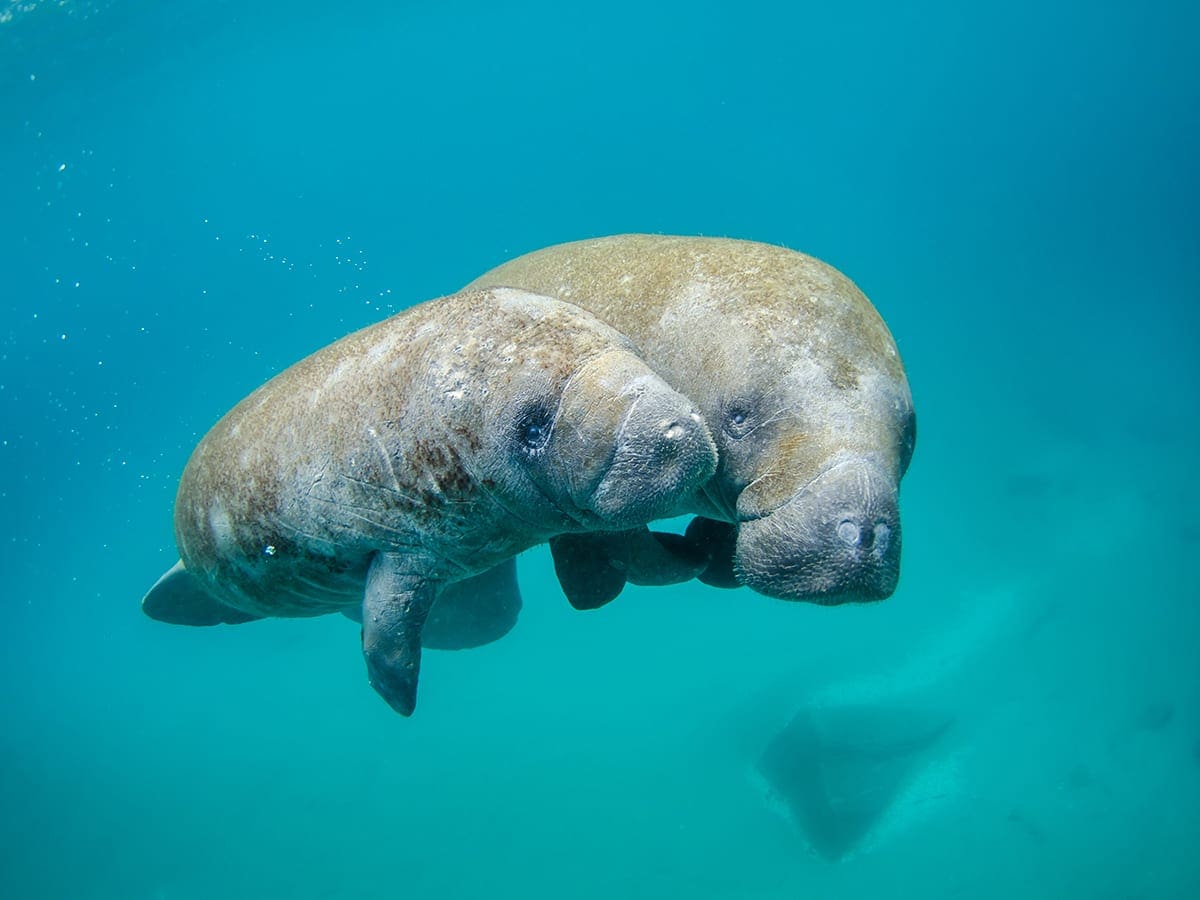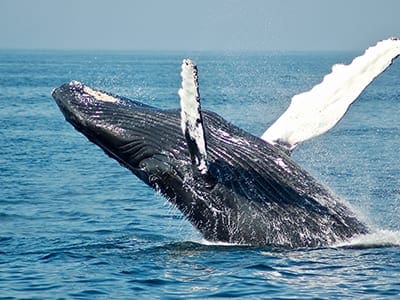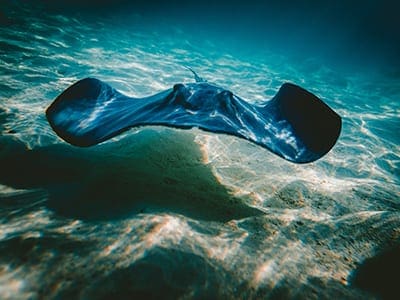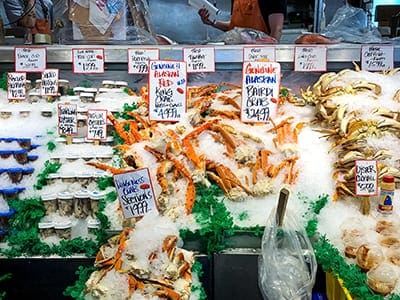
Marine Biology and Sustainable Aquaculture
Bachelor of Science
Dive into a green career
and a world of possibilities.
Uncover the secrets of marine ecosystems and sustainable aquaculture practices with our comprehensive program crafted for eco-conscious individuals like you. Our flexible learning platform ensures you can pursue your career without compromising your current commitments, bringing the wonders of the marine world to your fingertips.
Our program opens doors to a world of green career opportunities in marine biology and sustainable aquaculture. Connect globally with professionals and like-minded peers, expanding your network and gaining diverse perspectives in this dynamic field.
You’ll gain practical skills that set you on the path to becoming a champion for marine conservation and sustainable aquaculture. Our special emphasis on sustainable practices prepares you to responsibly manage aquaculture operations, positioning you at the forefront of the global effort in sustainability.
Marine Biology Degree Program Overview
The BS. in Marine Biology and Sustainable Aquaculture prepares students for a broad range of careers helping protect, preserve, maintain, and grow marine organisms and environments. Graduates can obtain employment immediately after graduation with private firms, aquariums, and various government agencies as marine animal trainers, aquaculture scientists, and fisheries technicians. This degree provides students with a broad emphasis on both marine biology and aquaculture and encompasses coursework with the rigor to prepare students for further study in graduate school or even starting their own aquaculture enterprise.
Career Outlook
Earn your degree.
Unlock new opportunities.
Number of Biologist jobs in the U.S., 2019.
Median pay for Biologists in 2019.
Estimated growth for Biologist jobs in the U.S. through 2029.
Number of Biologist jobs in the U.S., 2019.
Median pay for Biologists in 2019.
Estimated growth for Biologist jobs in the U.S. through 2029.
*Source: U.S. Bureau of Labor Statistics. Unity Environmental University cannot guarantee employment. Salary data represents averaged earnings for the occupations listed and includes workers at all levels of education and experience.
Experiential and Immersive Coursework

Distance Sampling Population Estimate
Through a simulation custom created by the Unity Environmental University XR Innovation Lab, students are tasked with identifying different species of whales based on their blow. In addition, students are asked to estimate how far the whales were from the boat and the number of whales in the area giving the students a feel of what being marine researcher.

Orientation of a Field Station
Students are asked to explore an island using a 360° video created by the Unity Environmental University XR Innovation Lab. They are asked to research this remote area and create ethograms based on behavioral observations of the animals on the island.

Sustainable Seafood Watch
In the local communities where each student lives, they are tasked with creating a graph of sustainability based on the seafood offerings at their local grocery store. They are asked to investigate what their local communities are able to offer.
Degree Requirements and Courses
The Marine Biology and Sustainable Aquaculture degree requires 120 credits, including 30 that must be completed at the 300 level or above. You may transfer in up to 90 credits from outside accredited institutions. For more details, view our full course catalog for a better look into your program, then apply online for free to get started.
Frequently Asked Questions
-
What is Marine Biology and Sustainable Aquaculture?
Marine Biology and Sustainable Aquaculture involves the study of ocean ecosystems and the cultivation of aquatic organisms in eco-friendly ways. Marine Biology explores the behavior, genetics, and habitats of marine species, contributing to conservation efforts and understanding biodiversity. Sustainable Aquaculture focuses on farming fish, shellfish, and seaweed with minimal environmental impact, ensuring food security and protecting marine environments.
Professionals in this field work on developing sustainable farming techniques, improving fish health, and restoring natural habitats. Careers include marine biologists, aquaculture managers, and environmental consultants, who collaborate with research institutions, government agencies, and private industries.
-
What courses will I be taking?
General Education Core: 35 credits
Environmental Professional Core: 13 credits
Elective Courses: 38 credits
Program Core: 34 credits- BIOL 203: Ecological Principles: Applications to Conservation and Wildlife
- CHEM 101: Chemistry I
- CHEM 102: Chemistry I Laboratory
- MBAQ 105: Introduction to Oceanography
- MBAQ 201: Form and Function of Unique Marine Ecosystems
- MBAQ 203: Global Diversity of Freshwater and Marine Resources Used in Sustainable Harvest
- MBAQ 301: Sustainable Aquaculture Techniques I: Growing Shellfish and Finfish
- MBAQ 303: Sustainable Aquaculture Techniques II: Crustaceans and Pathobiology
- MBAQ 307: Ichthyology and Fish Health
- MBAQ 310: Marine Mammal and Seabird Biology
- MBAQ 315: Diversity of Marine and Aquatic Vegetation
- MBAQ 401: Field Research in Marine Biology and Aquaculture
For course requirements and a better look into your program, view our full course catalog. Then apply online for free to get started.
-
How much does it cost?
Your online education should be affordable and manageable. Thanks to our promise to keep tuition flat through 2030, you won’t be burdened with unexpected increases or fees.
Our team of distance education concierges will work with you through the admissions process to help you plan and pay for your degree. Learn more about the costs here. -
How fast can I finish?
Our comprehensive 120-credit program can be tailored to fit your schedule and goals! Completion time is flexible, determined by the number of credits you choose to take each term (8 terms/year) and less time with transfer credits. Without transfer credits, you can anticipate the following completion times:
- 48 credits/year: Fast-track your education in only 2.6 years
- 30 credits/year: Achieve your degree in 4 years
- 24 credits/year: Complete in 5 years, if that’s your preferred pace!
Program Features
High Value Education: Nationally recognized for the quality of our programs delivered at an affordable price.
Social Mobility: Unity ranks in the top 2% of colleges in the U.S. for fostering upward mobility.
Sustainability Core: All programs are committed to sustainable practices, preparing you for a future of environmental awareness in all fields.
Flexible Learning: Balance work and education effortlessly by choosing when and where you want to study.
Flexible Start Dates: 8 start dates per year allows you to control your schedule
Personalized Guidance: Benefit from individualized academic and professional advising, where we are dedicated to turning your career and academic aspirations into tangible achievements.
Transfer-Friendly: Shorten your academic timeline, since we accept up to 90 credits to value your prior academic achievements.
Faculty Profiles
Seek out knowledge.
Learn from leaders.
Last Updated on March 17, 2025















